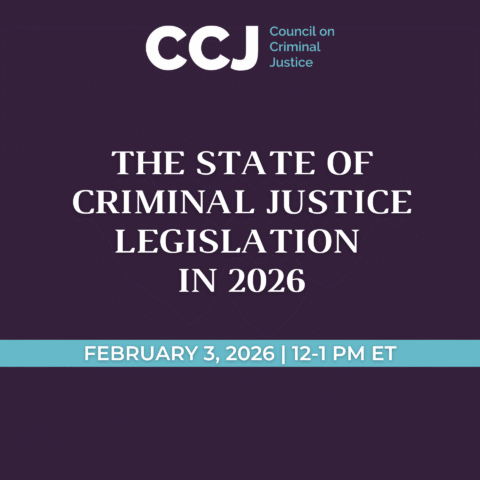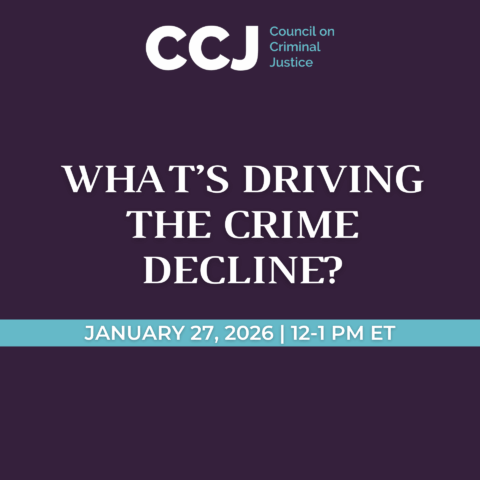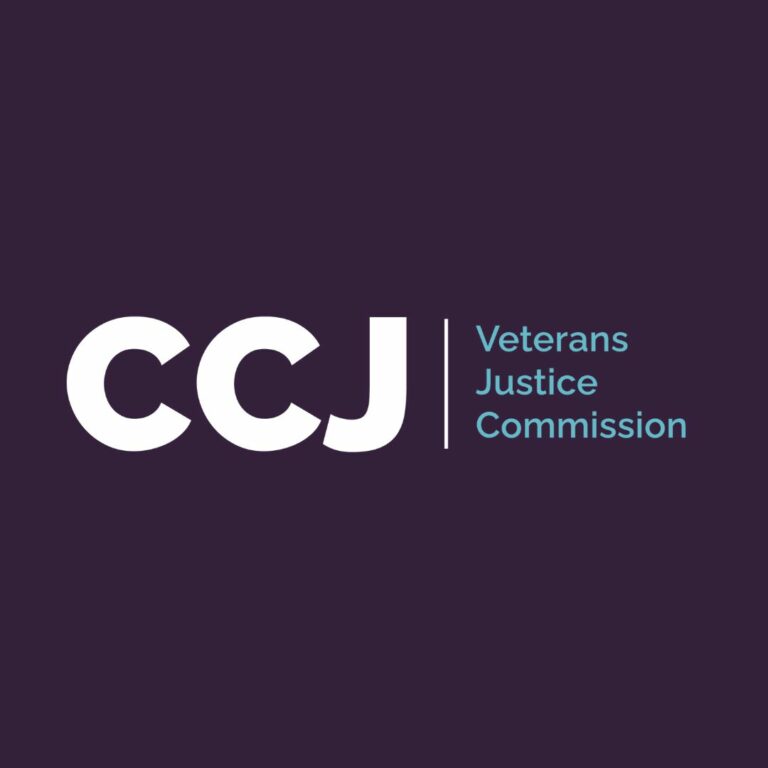Expert panel identifies critical policy elements, caveats to inform debates on banning chokeholds and no-knock warrants, requiring officers to intervene when witnessing misconduct by peers
5:00 a.m. ET, January 27, 2021
Contact: Jenifer Warren
jwarren@counciloncj.org
916-217-0780
WASHINGTON, D.C. – The Council on Criminal Justice Task Force on Policing today released a set of policy assessments that advise lawmakers to ban chokeholds, prohibit or severely restrict the use of no-knock warrants, and require officers to intervene when they see peers and supervisors use excessive force or engage in other misconduct.
The policy assessments, based on reviews of the most recent and rigorous research combined with the expertise of Task Force members, target policing issues that have been hotly debated for years but ignited new controversy after the 2020 deaths of George Floyd and Breonna Taylor.
In recommending a ban on chokeholds and other neck restraints, the Task Force said the misapplication of such holds can cause serious harm to individuals and police legitimacy and that the risks outweigh the benefits. Members noted, however, that such bans alone will have little impact on the number of people killed by police because less than 1% of deaths involving law enforcement are caused by asphyxiation.
The Task Force also advised jurisdictions to prohibit or severely restrict the use of no-knock warrants, quick-knock warrants, and unannounced police raids involving forcible entry. Members called the tactics ineffective in reducing crime, dangerous to occupants and officers, and unreliable as a means to recover evidence. The Task Force said all warrant requests should be based on a detailed threat analysis that prioritizes officer and resident safety, and that agencies should publish certain data on warrants to enhance transparency and accountability. Taylor was shot and killed during a controversial nighttime drug raid conducted by Louisville police officers who broke down her apartment door.
Addressing a key issue in the Floyd case, the Task Force said agencies should adopt both “duty-to-intervene” policies, which require bystanding officers to step in upon witnessing excessive force, and mandatory reporting rules that require officers to speak up when peers or superiors engage in other misconduct, such as drinking on the job or making racial slurs. Departments must then ensure violators are held accountable.
“Incidents of police violence have led some agencies to adopt these and other policy reforms, but such measures are not always shaped by science,” said Task Force Executive Director Nancy La Vigne. “This Task Force grounds policy reforms in research and provides detailed recommendations on how they can produce greater safety and justice.”
The assessments are the first in a series of analyses to be released in the coming months by the Task Force. Launched in November by the nonpartisan Council on Criminal Justice (CCJ), the Task Force is evaluating more than two dozen commonly proposed police reforms focused on preventing police use of excessive force, reducing racial biases, increasing police accountability, and improving the relationship between law enforcement agencies and communities. For each measure, the Task Force produces an assessment weighing the proposal’s relative value based on the best available research and the expertise and experience of members.
Task Force members represent a broadly diverse range of perspectives and experience and include law enforcement leaders, civil rights advocates, researchers, a former big-city mayor, and community members who have lost loved ones to police violence. The Crime Lab at the University of Chicago’s Harris School of Public Policy is serving as research partner for the Task Force, evaluating the empirical evidence that guides its recommendations.
The Task Force members are:
- Art Acevedo, Chief, Houston Police Department; President, Major Cities Chiefs Association
- Roy L. Austin, Jr., Partner, Harris, Wiltshire & Grannis, LLP; former White House domestic policy adviser
- Louis M. Dekmar, Chief, LaGrange (Ga.) Police Department; former President, International Association of Chiefs of Police
- Collette Flanagan, Founder, Mothers Against Police Brutality
- Walter Katz, Vice President of Criminal Justice, Arnold Ventures; former police oversight official, Los Angeles County and San Jose, Calif.
- Cynthia Lum, Professor, George Mason University, Department of Criminology, Law and Society; Director, Center for Evidence-Based Crime Policy
- Tashante McCoy, Regional Manager and Founder, Crime Survivors for Safety & Justice/The OWL Movement
- DeRay Mckesson, Educator, Author and Co-Founder, Campaign Zero
- Michael Nutter, Former Mayor, City of Philadelphia; former President, U.S. Conference of Mayors
- Sean Smoot, Director and Chief Counsel, Police Benevolent and Protective Association of Illinois
- Rosie Rivera, Sheriff, Salt Lake County, Utah
About the Council on Criminal Justice
The Council on Criminal Justice (CCJ) is a nonpartisan membership organization and think tank created to advance understanding of the criminal justice policy challenges facing the nation and builds consensus for solutions based on facts, evidence, and fundamental principles of justice.
As part of its array of activities, the Council conducts research and convenes independent groups of members and experts that produce reports with findings and policy recommendations on matters of concern. The findings and recommendations of the Task Force are its own; neither the Council’s Board of Directors nor its Board of Trustees will approve or disapprove the Task Force’s work.
To learn more, visit counciloncj.org.




